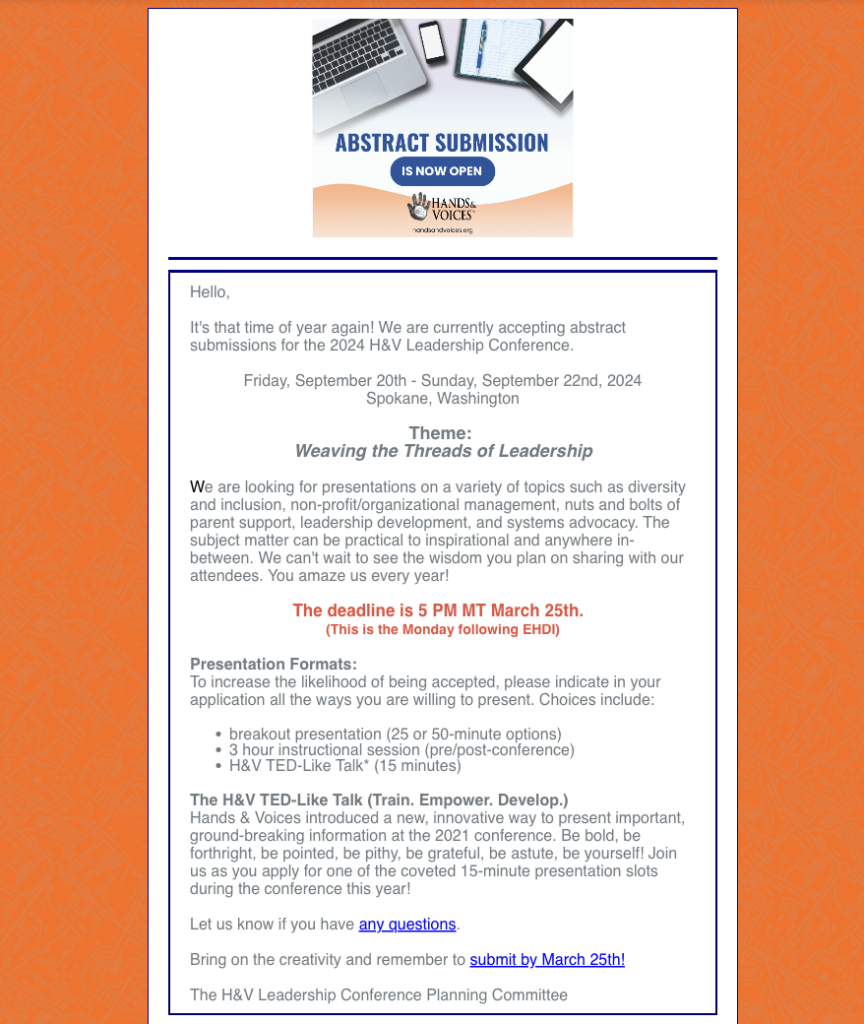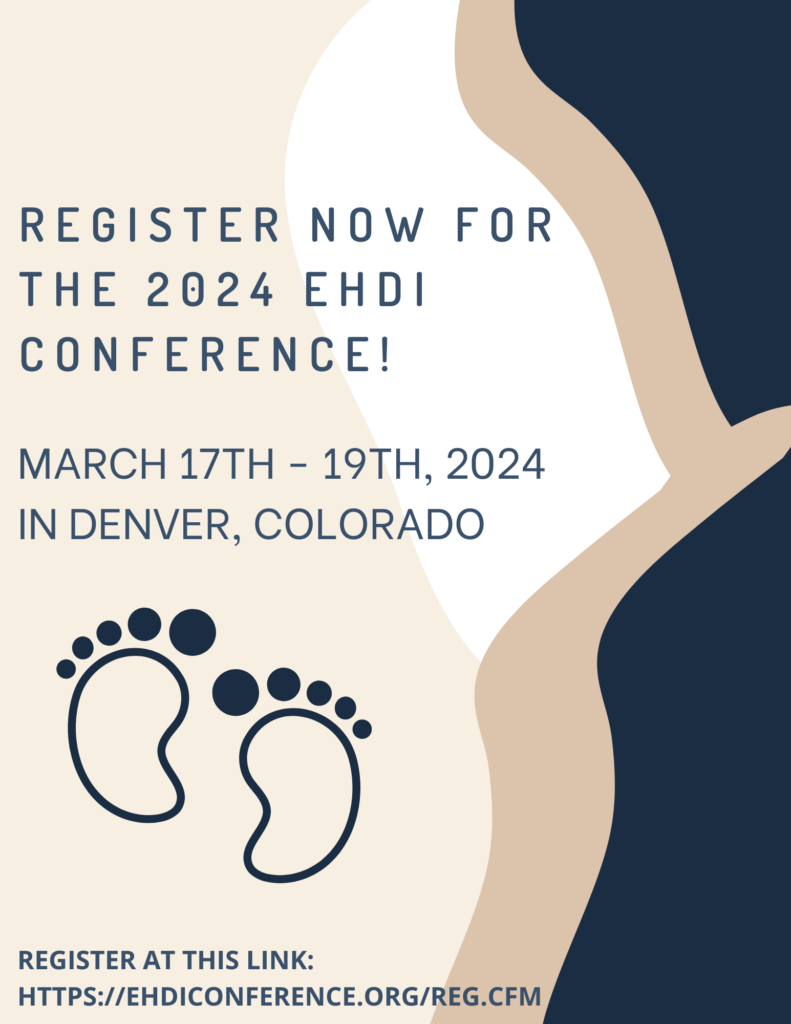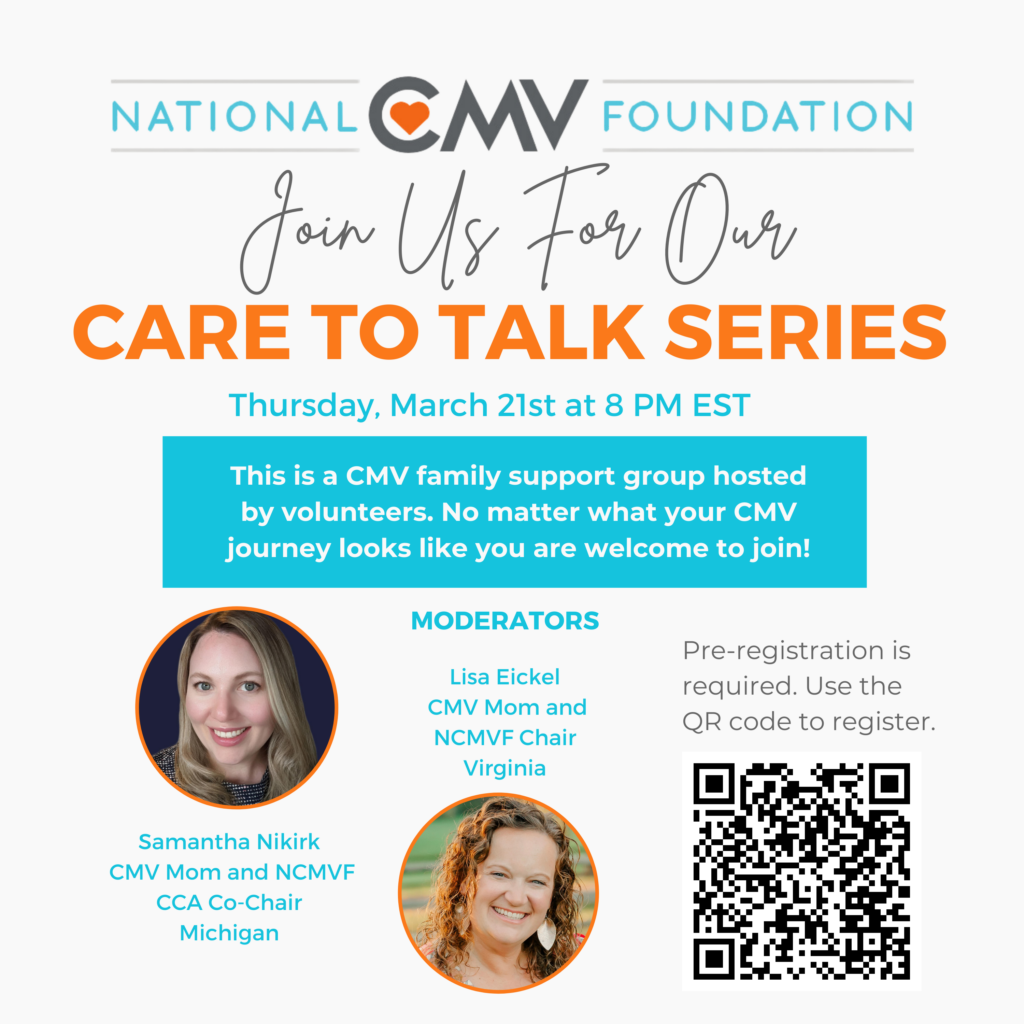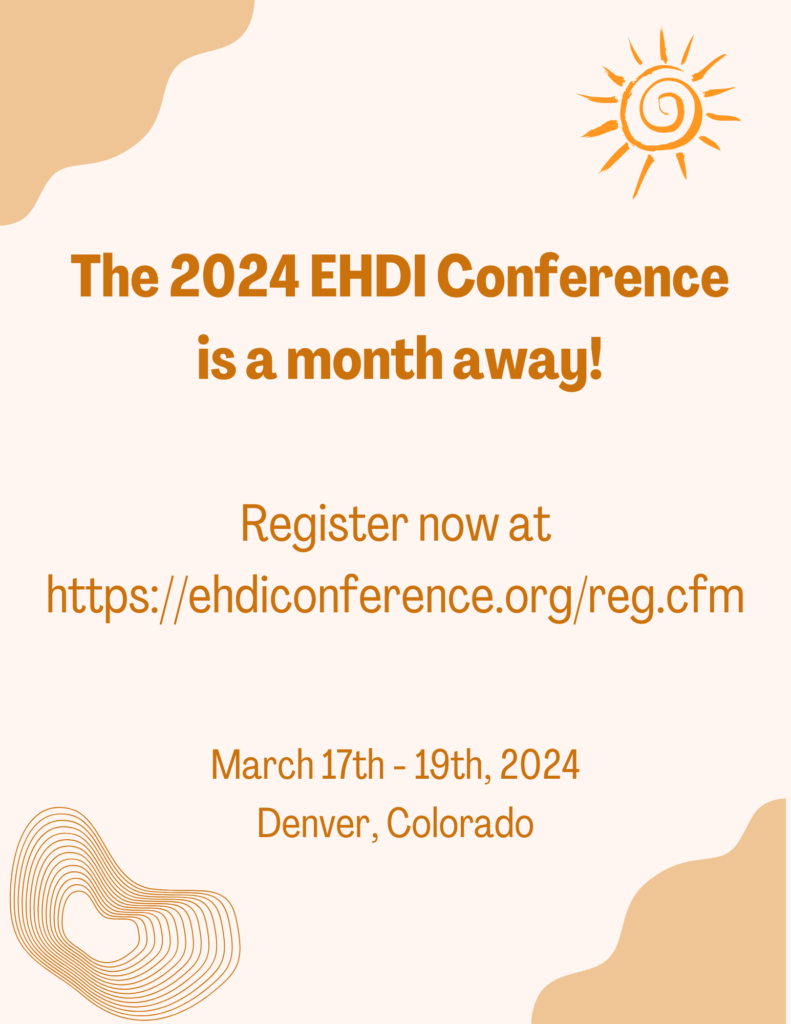https://www.nbcconnecticut.com/news/sports/tuning-out-the-noise-basketball-brotherhood/3230150/
Abstract submissions are open for the 2024 Hands and Voices Leadership Conference in Spokane, WA!
Some musical theatre fun for your Tuesday! Deaf + hearing performers are teaming up to stage an accessible version of the musical “Spring Awakening” for audiences in Milwaukee!
https://www.jsonline.com/story/entertainment/arts/2024/02/27/spring-awakening-skylight-music-theatre-alexandria-wailes/72696090007/
Check out this article about deaf actor Keith Banks and his latest stage show that is performed entirely using ASL!
Register for the 2024 EHDI Conference here: https://ehdiconference.org/reg.cfm
Check out this article about the history of the deaf community in Martha’s Vineyard!
https://vineyardgazette.com/news/2024/02/19/new-research-potentially-widens-scope-vineyards-deaf-community
Are you a parent of a child with CMV? The National CMV Foundation has started a volunteer led, parent support group. Sign up to join today!
Tomorrow! On February 21st, NCHAM will be hosting a webinar: “Intermediate Hearing Screening Webinar: Building on Your Experience with Evidence-based Hearing Screening Practices”
Register here: https://usu.co1.qualtrics.com/jfe/form/SV_83bS8MBuj7pUypg
Webinar Description
Now that you have had some experience implementing evidence-based hearing screening practices, this is an opportunity to get some of your questions addressed by experts. Whether you are using Otoacoustic Emissions (OAE) hearing screening or Pure Tone Audiometry, you likely have questions and/or a need to review key points to ensure you are adhering to evidence-based practice guidelines.
Please join us for a webinar and question and answer session on improving the quality of hearing screening and evaluation practices for children ages birth to 5. And spread the word to anyone whom you think may benefit from this learning opportunity.
Presenters
William Eiserman, Ph.D. is the Associate Director of the National Center for Hearing Assessment and Management at Utah State University and is co-director of the Early Hearing Detection and Intervention – National Technical Resource Center. Dr. Eiserman has over 25 years of experience developing and leading the Early Childhood Hearing Outreach (ECHO) Initiative which focuses on implementing evidence-based hearing screening and follow-up practices for young children with a primary focus on Early Head Start and Head Start and other community-based settings. Along with his ECHO Initiative colleagues, Dr. Eiserman has provided training and technical assistance to thousands of programs across the country and in international settings which have demonstrated the efficacy of early identification of hearing loss in pediatric populations.
Terry Foust, AuD is a pediatric audiologist and speech language pathologist who has been a key member of the ECHO Initiative team since its beginnings in 2001. Dr. Foust has provided intensive training and technical assistance to staff in early childhood programs in nearly every state, including Head Start, early intervention programs and community health centers. Dr. Foust has also provided technical assistance in a variety of international settings including in India, Ghana, Georgia and Kenya.




